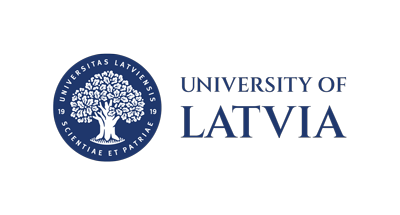How competitive intelligence can be used to improve a management vocational high school: A case from Indonesia
DOI:
https://doi.org/10.37380/jisib.v9i3.515Keywords:
Competitive intelligence, management, vocational high schoolAbstract
Vocational high school needs professional management in order to increase competitiveness. This requires easy, efficient and comprehensive management techniques to maximize potential. The purpose of this study is to improve vocational high school competitiveness by applying competitive intelligence methods. This study uses competitive intelligence methods that are divided into two steps: the competitive intelligence circle in formulating problems and the competitive framework of intelligence as a management model. The results of this study show that problems can be mapped using different competitive intelligence tools. The use of a competitive intelligence framework produces a prime management model and strategies. This applied framework enhances the competitiveness of the vocational high school in our case.References
B. Adil, B. Adil, B. Mustapha, T. Malika, and B. Said, “The ICT-Empowered Pedagogy of Educational Supervisors and the Engineering of their Accompanying Role as Conductive to Quality Teacher Performance,” Int. J. Adv. Trends Comput. Sci. Eng., vol. 8, no. 1.4, pp. 434–438, 2019.
S. I. BPS, “Keadaan Pekerja di Indonesia Agustus 2018 (Laborer Situation in Indonesia Agustus 2018),” 2018.
S. I. BPS, “Statistical Yearbook of Indonesia 2017,” Jakarta, 2017.
D. P. S. M. K. K. P. dan K. PSMK, Buku Data SMK 2017/2018, 2017th ed. Jakarta: Direktorat Pembinaan Sekolah Menengah Kejuruan (PSMK), Kementerian Pendidikan dan Kebudayaan, 2017.
A. Mazouak, M. Tridane, and S. Belaaouad, “Digital in the administrative management of Moroccan School: Contributions, Challenges and Constraints,” Int. J. Adv. Trends Comput. Sci. Eng., vol. 8, no. 1.4, pp. 267–271, 2019.
R. Pellissier, “Towards a universal competitive intelligence process model,” SA J. Inf. Manag., vol. 15, no. 2, pp. 1–8, 2009.
M. Alnoukari, R. Razouk, and A. Hanano, “BSC-SI : A Framework for Integrating Strategic Intelligence in Corporate Strategic Management,” Int. J. Soc. Organ. Dyn. IT, vol. 5, no. 2, pp. 1–14, 2016.
G. Opait, G. Bleoju, R. Nistor, and A. Capatina, “The in fl uences of competitive intelligence budgets on informational energy dynamics ☆,” J. Bus. Res., 2015.
Y. Zhang, D. K. R. Robinson, A. L. Porter, D. Zhu, G. Zhang, and J. Lu, “Technological Forecasting & Social Change Technology roadmapping for competitive technical intelligence,” Technol. Forecast. Soc. Chang., 2015.
Ľ. Stefanikova, M. Rypakova, and K. Moravcikova, “The impact of competitive intelligence on sustainable growth of the enterprises,” Procedia Econ. Financ., vol. 26, no. 15, pp. 209–214, 2015.
J. R. B. V R Palilingan, “Profession recommended system for higher education students using Bayesian method Profession
recommended system for higher education students using Bayesian method,” IOP Conf. Ser. Mater. Sci. Eng. 434, vol. 424, no. 2018, pp. 1–7, 2018.
T. Plessis and M. Gulwa, “Developing a competitive intelligence strategy framework supporting the competitive intelligence needs of a financial institution ’ s decision makers Research methodology,” South African J. Inf. Manag., pp. 1–8, 2016.
V. R. Palilingan and J. R. Batmetan, “Competitive Intelligence framework for Increasing Competitiveness Vocational High School Management,” Adv. Soc. Sci. Educ. Humanit. Res., vol. 299, no. Ictvet 2018, pp. 230–233, 2019.
M. Shujahat, S. Hussain, M. I. Malik, and J. Ali, “Strategic management model with lens of knowledge management and competitive intelligence A review approach,” VINE J. Inf. Knowl. Manag. Syst., vol. 47, no. 1, pp. 55–93, 2017.
T. Colakoglua, “The Problematic Of Competitive Intelligence : How To Evaluate & Develop Competitive Intelligence ?,” Procedia - Soc. Behav. Sci., vol. 24, pp. 1615–1623, 2011.
M. Prilop and F. Moez, “Designing Analytical Approaches for Interactive Competitive Intelligence,” Int. J. Serv. Sci. Manag. Eng. Technol., vol. 4, no. 2, pp. 34–45, 2013.
B. John, C. Milewicz, S. Lee, and A. Sahaym, “Industrial Marketing Management Salesperson competitive intelligence and performance : The role of product knowledge and sales force automation usage,” Ind. Mark. Manag., 2013.
Downloads
Published
Issue
Section
License
Copyright (c) 2020 Journal of Intelligence Studies in Business

This work is licensed under a Creative Commons Attribution-NonCommercial-NoDerivatives 4.0 International License.
Authors who publish with this journal agree to the following terms:
- Authors retain copyright and grant the journal right of first publication with the work simultaneously licensed under a Creative Commons Attribution License that allows others to share the work with an acknowledgement of the work's authorship and initial publication in this journal.
- Authors are able to enter into separate, additional contractual arrangements for the non-exclusive distribution of the journal's published version of the work (e.g., post it to an institutional repository or publish it in a book), with an acknowledgement of its initial publication in this journal.
- Authors are permitted and encouraged to post their work online (e.g., in institutional repositories or on their website) prior to and during the submission process, as it can lead to productive exchanges, as well as earlier and greater citation of published work (See The Effect of Open Access).







